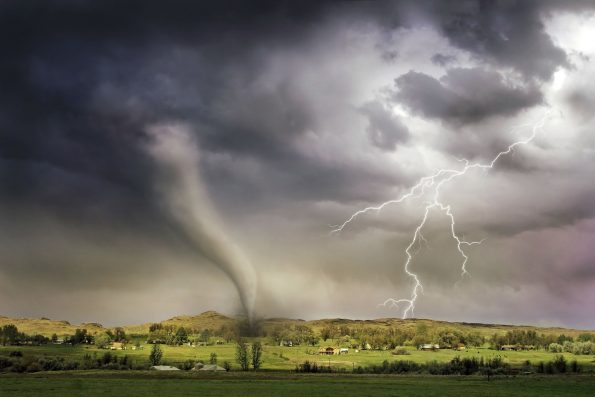Natural disasters can happen at any time, with very little warning. Weather can turn on a dime, no matter the season. I live in Texas- tornado alley, where you generally think tornados only occur in spring. Just last week there were devastating tornados in the D/FW metroplex. There was another horrible tornado in December a few years ago. Whether you live on the coast where hurricanes hit, or in flood prone regions; you need to plan for disasters before they strike.

Emergency Preparedness
It is essential to have an emergency preparedness plan in place and ready to go. This should include a family communication plan, a first aid kit, financial resources, food and water supplies for at least three days, and a secure location for important documents. Knowing what to do in the event of a natural disaster can save time and energy when it occurs. You should also know how to shut off utilities such as gas and electricity in a natural disaster, as this can help minimize structural damage. Additionally, it is important to have an evacuation plan that is clearly outlined so you and your family know where to go in an emergency.
Communication
Communication between yourself, friends and family, and the authorities is essential during a natural disaster. It can be difficult to contact family members during a disaster as phone towers may be damaged. Periodically try to make contact to be sure everyone is safe.
Information is more readily available today with the use of smart phones. Tune into local news channels for the latest information. If you’re in a region that is evacuated during disasters, listen for information about evacuation routes, shelters, and other assistance. Heed the warnings of local law officials. You should have a small gas powered generator to keep your devices charged and ready to receive instructions.
Aftermath Clean Up
After flooding and other natural disasters, it is important to begin the flooding clean up and debris removal as fast as possible. Using pumps to remove standing water will help things start to dry out. Any type of water damage can lead to a nightmare of mold and collapsing structures. Be sure you home is structurally sound before making entry. If you only sustained small amounts of roof damage; get tarps to the roof to cover any holes to lessen the amount of rain that can soak in.
Be careful of contractors who will begin to show up asking for the business of repairing your damage. Many times there are scam artists who will take your money and leave your home untouched. Try to hire local companies who’ve been in business at least five years. Check the Better Business Bureau to see if the company has had unresolved or continuing complaints. It’s a shame but there are predators out there looking to take advantage of your stress.
Mental Health
Finally, it is important to consider your mental health after you’ve survived a natural disaster. Regardless of physical injuries, going through the trauma of natural disaster can take a toll. It is normal to feel overwhelmed and stressed during in the aftermath of a tornado, hurricane, flood, or earthquake. Taking the time to take care of yourself and your emotional wellbeing is essential, if you were directly affected. Mental health services can help with anxiety, depression, post-traumatic stress disorder (PTSD), or other mental illnesses that may be triggered due to any type of natural disasters.
These services provide support from trained professionals who can help you cope with the emotional toll. Some online resources are available for those dealing with other crisis-related issues, such as the National Alliance on Mental Illness’ Disaster Preparedness Toolkit and the Substance Abuse and Mental Health Services Administration’s Coping With a Disaster toolkit. Don’t think you should be able to handle the stress without help. It’s doesn’t make you weak; it makes you smart.
Going through a natural disaster can be a blow to your mental state as well as your finances. Surviving a natural disaster means more than just staying alive. Take the steps necessary to not only survive but thrive in the aftermath.
